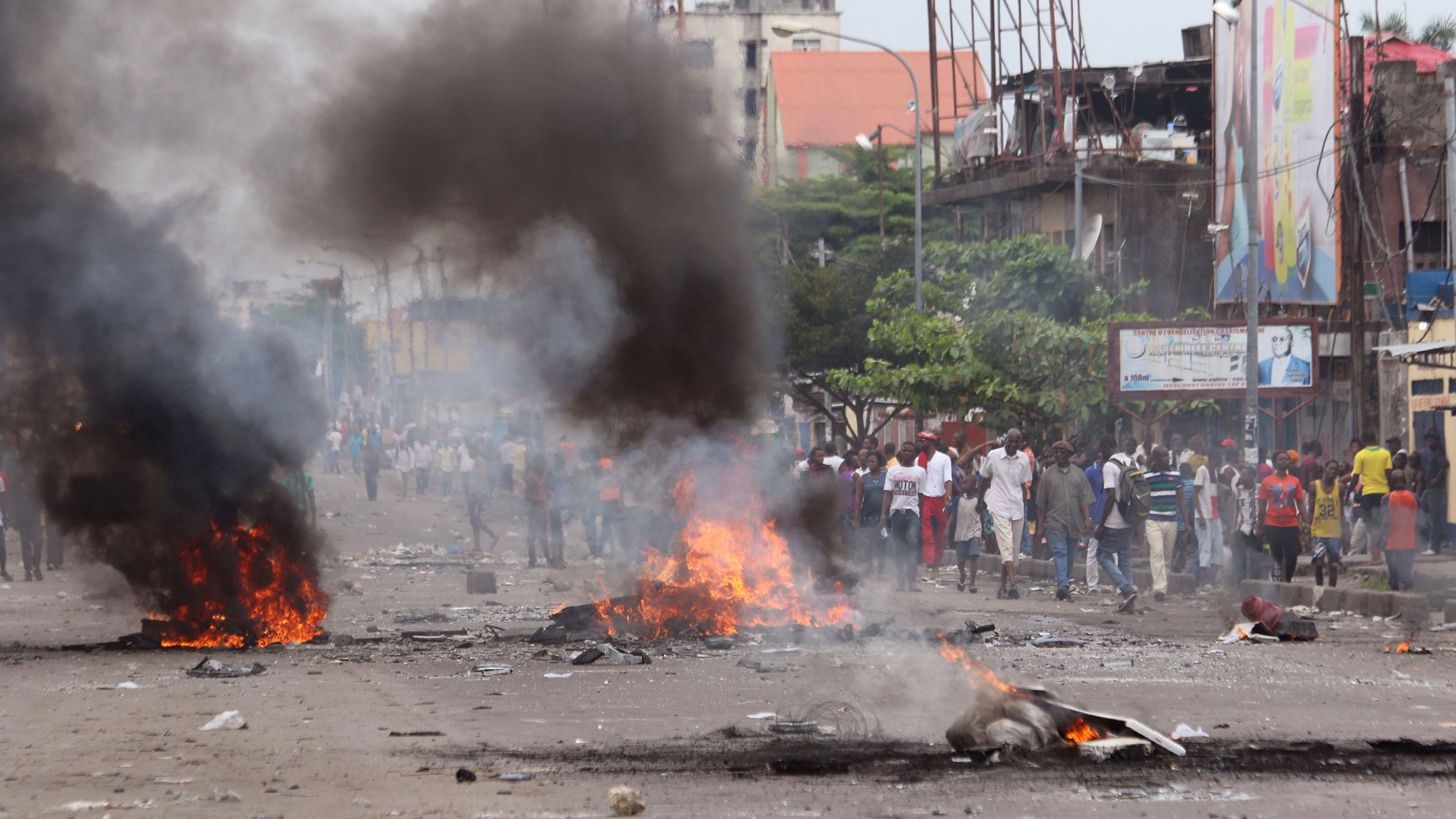DR Congo is once again spiraling into violence ahead of an election
The headquarters of one the Democratic Republic of Congo’s main opposition parties was torched on Sept. 20. According to Reuters, at least two people died in the blaze. A day earlier, an anti-government protest turned deadly, after at least 17 people died in clashes, according to the country’s interior ministry. Opposition parties put the number at 53, while activists say 25 protesters were shot.


The headquarters of one the Democratic Republic of Congo’s main opposition parties was torched on Sept. 20. According to Reuters, at least two people died in the blaze. A day earlier, an anti-government protest turned deadly, after at least 17 people died in clashes, according to the country’s interior ministry. Opposition parties put the number at 53, while activists say 25 protesters were shot.
The violence has once again left Africa’s largest country teetering on the brink of violence ahead of a crucial election. The resource-wealthy country has never experienced a peaceful transition and the political violence carries the fear that a civil war that left nearly four million people dead between 1996 and 2003 may resurface.
President Joseph Kabila has ignored nearly a year of protests demanding that he set a date for the election that was supposed to take place on Nov. 27. The electoral commission said it cannot formalize the voter list before July 2017, despite a constitutional provision that the date must be set three months before Kabila’s term ends in December, according to the Associated Press. The country’s constitution prohibits a third term for Kabila, but his government has tried to delay a vote using tactics like increasing the number the country’s provinces and even demanding a national census, which could take years.
The opposition is accusing the 45-year-old president of trying to extend his rule. Talks among political leaders to finalize the election date and process failed after the opposition walked out.The building that was torched belonged to the Union for Democracy and Social Progress, whose leader, Etienne Tshisekedi, has been at the fore demanding an election date. Tshisekedi has vowed that protest will continue until Dec. 19, the day Kabila was supposed leave office. Another opposition leader, Martin Fayulu was detained during the protests, according to Reuters.
“The decisions president Kabila and his government will make in the coming weeks can make all the difference for Congo’s future,” said Daniel Bekele, Africa director at Human Rights Watch. “This is a critical opportunity for the country to strengthen democracy, the rule of law and human rights for its own future and for the entire region.”